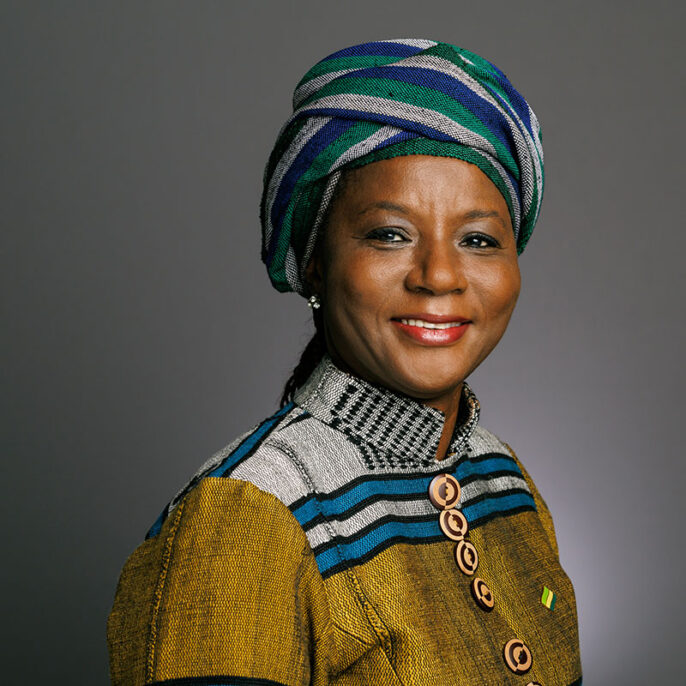Naasu Fofanah empowers Sierra Leonean women through finance, policy reform, and advocacy for gender equality and rights.
Long before Naasu Genevieve Fofanah became one of Sierra Leone’s most influential voices for women’s rights and financial inclusion, she was a young girl surviving in silence. As a teenager, she endured sexual violence and an illegal abortion. These experiences could have broken her, but instead became the foundation for her life’s work. From those painful beginnings, she grew into one of the key architects of Sierra Leone’s modern gender policy and one of Africa’s most vocal champions for women’s empowerment.
Naasu Fofanah’s journey to national recognition started in 2013 with her appointment as Sierra Leone’s inaugural Special Gender Adviser to former President Ernest Bai Koroma. In this capacity, Fofanah was instrumental in integrating gender equality and women’s empowerment into the nation’s official development plan, the Agenda for Prosperity (2013–2018). This framework, which she helped draft, subsequently developed into the significant Gender Equality and Women’s Empowerment (GEWE) Act of 2022. This law formally embedded gender equity and women’s rights within Sierra Leone’s governance structure.
Her influence travelled beyond Sierra Leone. As a representative for West Africa at the United Nations Economic Commission for Africa’s (UNECA) Women and Development Bureau, she played a key role in shaping continental policies for women’s advancement. Additionally, she served as Vice Chairperson and technical adviser on the Common African Position Post-2015 Development Agenda, where her contributions helped form the framework for the UN’s Sustainable Development Goals.
Founding the ‘Susue’ brand
After years of working in policy, Fofanah realised that true equality requires more than legislation. It demands economic access. During the COVID-19 pandemic, when women entrepreneurs faced difficulties staying afloat, she founded Susue Consultancy and Susue Women’s Finance to tackle women’s exclusion from traditional banking systems. Through a partnership with Sierra Leone Commercial Bank, she launched the Women’s Bank Initiative, a pioneering platform providing low-interest loans and mobile financial services tailored to women in the informal sector.
The programme simplified loan access, reduced bureaucratic delays, and directly reached women in their shops and markets. Thousands of women have since received affordable loans, financial literacy training, and business mentorship, enabling them to grow their enterprises and create jobs.
In 2024, Fofanah grew that vision with the establishment of the Women’s Green Bank, aimed at transforming women’s access to finance through sustainable and inclusive banking models. She also co-chairs the Bank of Sierra Leone’s Financial Literacy Working Group, where she advocates for financial education and a savings culture, particularly among market women and rural entrepreneurs.
Her activism also includes advocacy for women’s bodily autonomy. She was one of the most prominent voices behind Sierra Leone’s Safe Abortion Bill, which aimed to legalise abortion under specific conditions to prevent deaths from unsafe procedures – although the bill passed Parliament twice, it was never signed into law due to conservative opposition.
Fofanah’s leadership was recognised in 2020 when Naasu Fofanah was listed among the 50 Most Influential Sierra Leonean Women. In 2023, she made history as the first Sierra Leonean woman to become a Yale World Fellow. Beyond her work in policy and advocacy, Fofanah has also shown a strong entrepreneurial spirit by developing Susue into a food brand. This brand produces chilli, coconut oils and Wanjama Pemahun, both created to generate income for women in rural communities.



